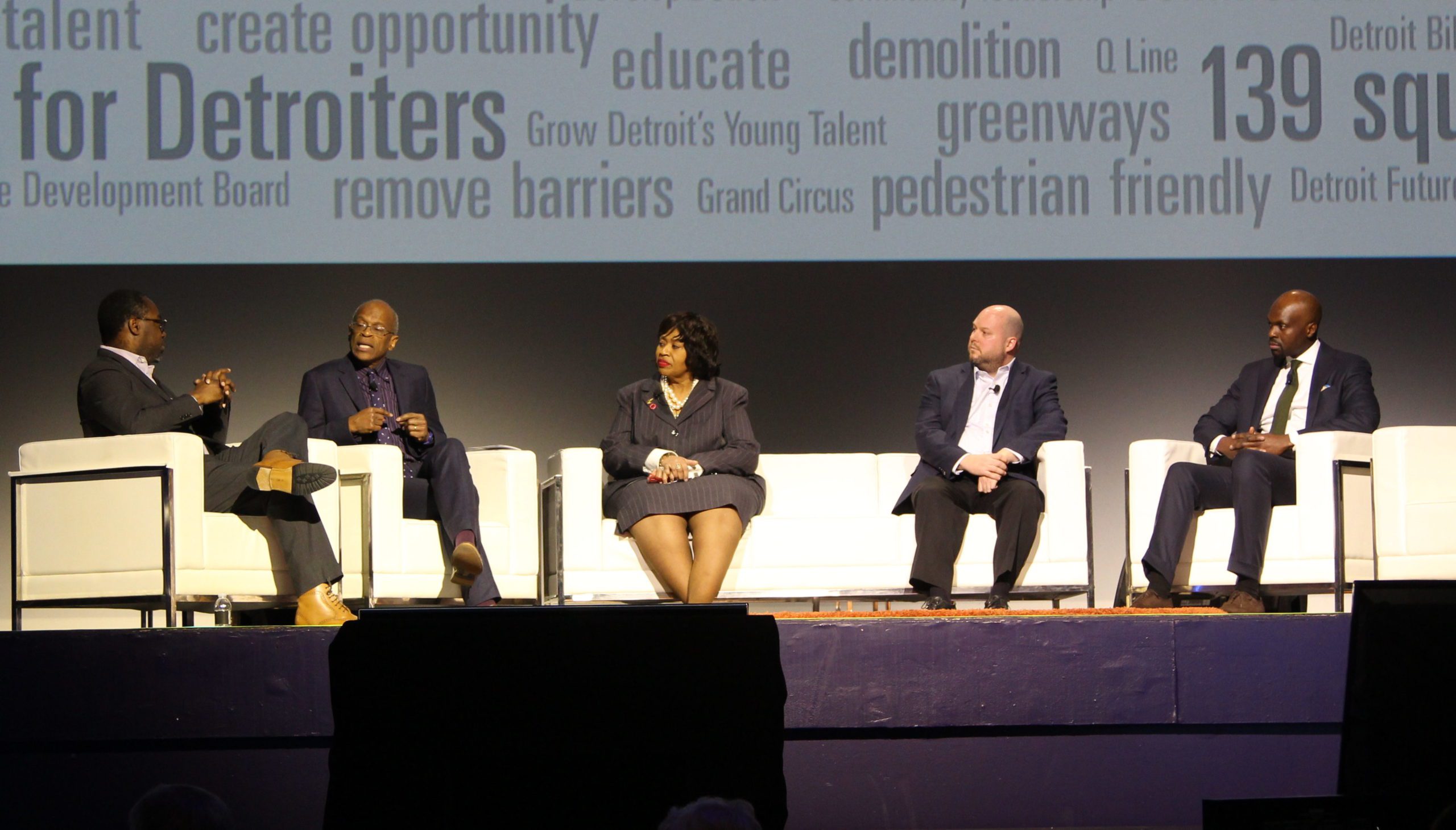Economic Development Experts: Detroit’s Reinvention Must Extend to Neighborhoods
March 7, 2017With development showing no signs of slowing, engaging Detroiters in thoughtful dialogue on the city’s long-term vision and building up neighborhoods is necessary to continue Detroit’s momentum panelists said in the session, “Strengthening Detroit: Partners in Economic Development.”
Citing the recently announced plans to create more public parkland on the city’s east riverfront development, Maurice Cox, planning director for the city of Detroit, said the decision to forego building more high-end apartments and condos followed extensive conversations with the public.
“The riverfront is home to an enormous diversity of people who use it. Our thought was that we need to give the riverfront back to the people. Private development will shape it, but the people will have an impact,” Cox said.
The topic kicked off a conversation on thoughtful inclusion and shared opportunity as projects come online across the city.
Detroit City Council President Brenda Jones said she would like to see more jobs for longtime residents who weathered the city’s economic collapse.
“We need to get our young people involved in the development taking place. It’s a great opportunity for those who want to do something downtown but in the communities as well,” Jones said, calling for more apprenticeship programs.
Moddie Turay, executive vice president of real estate and financial services for the Detroit Economic Growth Corp., added that the city’s economic progress must go beyond downtown and Midtown to truly be considered a renaissance.
 “There’s a lot that’s happening here. We’re just not there yet,” Turay said. “We have another five or so years to go.”
“There’s a lot that’s happening here. We’re just not there yet,” Turay said. “We have another five or so years to go.”
Cox said leaders should consider development taking place downtown as a “both and” scenario, suggesting that catalytic projects such as The District Detroit and the riverfront can be leveraged to positively impact downtown and the neighborhoods.
“The soul of this city is its neighborhoods. The heart of a city inadvertently always happens at its core and grows out. The challenge is a lot of American cities forget about the soul and forget about the neighborhoods.”
MORE: Read more about the innovative work that is being done to ensure Detroit’s comeback continues.
That is not the case in the Motor City, Cox said, pointing to development taking place at anchor institutions like University of Detroit Mercy and Marygrove College that is helping create full-scale neighborhood recovery north of Six Mile Road.
In answering a question on the importance of talent, Justin Robinson, vice president of business attraction for the Detroit Regional Chamber, said it is the No. 1 asset investors from other states and countries look for when deciding to relocate.
“The availability, volume and quality of talent is a key part in attracting business. To do that, you have to have the neighborhoods that talent wants to live in,” he said. “When we have that, we’ll see the economic development flow in as a result.”
“There’s tremendous progress being made in Southeast Michigan and it’s important to understand that companies are looking at the labor of not just one community; they are looking at an entire region. We need to be better at communicating how Detroit and the region are collaborating around creating that workforce,” Robinson added.
Panelists also acknowledged that the business climate, including taxes and regulation, still is not as attractive as it could be, with Cox and Jones addressing the impact of the community benefits agreement (CBA) ordinance Detroiters passed in November of last year.
Still, Cox said: “We need to give it time to play out.”
Read more from the 2017 Detroit Policy Conference:
Christopher Ilitch: Teamwork, Collaboration Will Guide Detroit’s Bright Future
